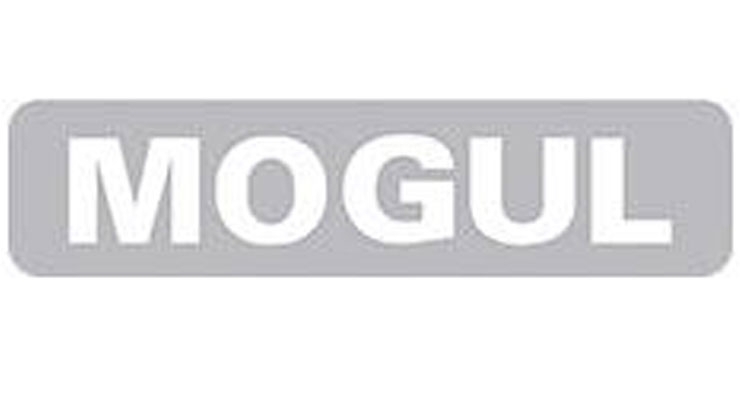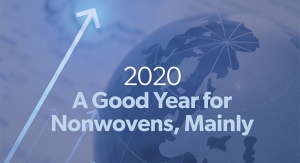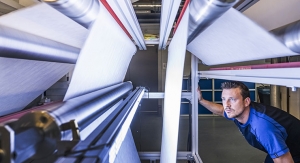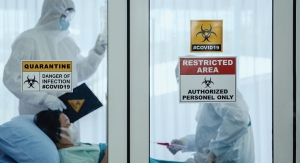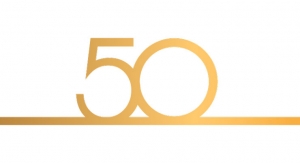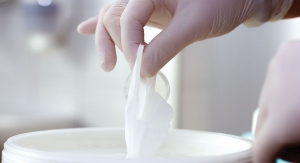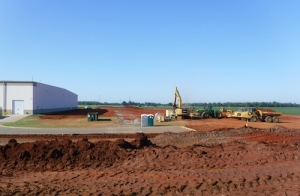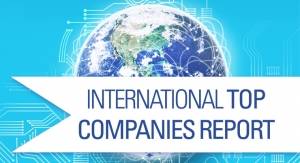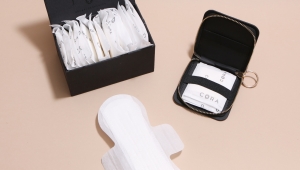09.12.17
Gaziantep, Turkey
www.mogulsb.com
2017 Nonwovens Sales: $128 million
Key Personnel
Ekerem Kayali, chairman; Ayse Kayali, executive board member; Serkan Gogus, CEO; Darryl Fournier, president, Mogul South Carolina Nonwovens Corp.; Ersin Kosker, COO
Plants
Gaziantep, Turkey; Durabey-Istanbul, Turkey; Gray Court, SC
Processes
Spunbond (including bico and microfilament technologies), meltblown, spunlace, extrusion coated/laminated fabrics, PEVA films, welded fabrics, converting
Major Markets
Bedding and furniture, medical, agriculture-landscape, luggage and shoe linings, filtration, oil sorbents/spill control, wipes, protective apparel, construction, hygiene, automotives, fabric softeners, laminating/coatings substrates, packaging, vacuum cleaner dustings
Increasing contributions from new sites in South Carolina and Luleburgaz, Turkey, have helped offset negative currency rates at Mogul Nonwovens. The Gaziantep, Turkey-based nonwovens producer reports that its 2017 nonwovens sales increased from $121 million to $128 million. This upward trajectory has continued into 2018 thanks to better exchange rates between the U.S. and Turkey, raw material increases, growth at the company’s U.S. operation and increased interest in its Madaline and Durell product lines, according to CEO Serkan Gogus.
In March 2017, Mogul completed its first foreign operation in Grey Court, SC, where it began operating a state-of-the-art spunlace line. According to the company, the new line has started up well with minimal issues and its products are getting widespread acceptance in the marketplace. “In particular, the loft, web uniformity and hydroembossing capabilities have been well received,” says Gogus.
The main challenges Mogul has faced in South Carolina relate to labor tightness and polyester pricing/availability. However, the company has been able to find some great employees and expects to be fully staffed by year’s end. This has allowed Mogul to succeed in markets that require multiple functionalities such as high loft and softness, cleaning efficiency and strength or sustainability and absorbency. These include not only premium wipes and hygiene but also medical and technical applications.
Meanwhile in Turkey it has added a second site near Istanbul, which contains two lines, one based on crosslapping technology and a hybrid microfilament technology. The crosslapping technology makes new products featuring complex fibers, filaments and web formations as well as chemical treatments and printing applications. Mogul is marketing the material made on this line under the Durell brand, saying it complements existing spunlace fabric offerings and helps expand its role in the automotive, artificial leather, dry wipes, depilation pads, roofing, medical and hygiene markets.
The brand name for Mogul’s microfilament hybrid technology is Madaline. These materials can achieve fabric properties close to conventional textiles to target not only classic nonwovens end uses but also apparel, upholstery and home textile applications.
Gogus says that there is plenty of room for investment at both of the new plants. The Grey Court site is situated on 20 acres of land and has been described as just the start of Mogul’s North American investment strategy while a three-phase investment is intended for the Lulebrugaz site. However, Gogus says that there are no plans in place for investment at either site in the near term.
“For sure Mogul is managed with an entrepreneurial philosophy and we always look for ways to diversify and grow our business but for now we just finalized new investments. In mid and long term we will be looking at new investments,“ he adds.
www.mogulsb.com
2017 Nonwovens Sales: $128 million
Key Personnel
Ekerem Kayali, chairman; Ayse Kayali, executive board member; Serkan Gogus, CEO; Darryl Fournier, president, Mogul South Carolina Nonwovens Corp.; Ersin Kosker, COO
Plants
Gaziantep, Turkey; Durabey-Istanbul, Turkey; Gray Court, SC
Processes
Spunbond (including bico and microfilament technologies), meltblown, spunlace, extrusion coated/laminated fabrics, PEVA films, welded fabrics, converting
Major Markets
Bedding and furniture, medical, agriculture-landscape, luggage and shoe linings, filtration, oil sorbents/spill control, wipes, protective apparel, construction, hygiene, automotives, fabric softeners, laminating/coatings substrates, packaging, vacuum cleaner dustings
Increasing contributions from new sites in South Carolina and Luleburgaz, Turkey, have helped offset negative currency rates at Mogul Nonwovens. The Gaziantep, Turkey-based nonwovens producer reports that its 2017 nonwovens sales increased from $121 million to $128 million. This upward trajectory has continued into 2018 thanks to better exchange rates between the U.S. and Turkey, raw material increases, growth at the company’s U.S. operation and increased interest in its Madaline and Durell product lines, according to CEO Serkan Gogus.
In March 2017, Mogul completed its first foreign operation in Grey Court, SC, where it began operating a state-of-the-art spunlace line. According to the company, the new line has started up well with minimal issues and its products are getting widespread acceptance in the marketplace. “In particular, the loft, web uniformity and hydroembossing capabilities have been well received,” says Gogus.
The main challenges Mogul has faced in South Carolina relate to labor tightness and polyester pricing/availability. However, the company has been able to find some great employees and expects to be fully staffed by year’s end. This has allowed Mogul to succeed in markets that require multiple functionalities such as high loft and softness, cleaning efficiency and strength or sustainability and absorbency. These include not only premium wipes and hygiene but also medical and technical applications.
Meanwhile in Turkey it has added a second site near Istanbul, which contains two lines, one based on crosslapping technology and a hybrid microfilament technology. The crosslapping technology makes new products featuring complex fibers, filaments and web formations as well as chemical treatments and printing applications. Mogul is marketing the material made on this line under the Durell brand, saying it complements existing spunlace fabric offerings and helps expand its role in the automotive, artificial leather, dry wipes, depilation pads, roofing, medical and hygiene markets.
The brand name for Mogul’s microfilament hybrid technology is Madaline. These materials can achieve fabric properties close to conventional textiles to target not only classic nonwovens end uses but also apparel, upholstery and home textile applications.
Gogus says that there is plenty of room for investment at both of the new plants. The Grey Court site is situated on 20 acres of land and has been described as just the start of Mogul’s North American investment strategy while a three-phase investment is intended for the Lulebrugaz site. However, Gogus says that there are no plans in place for investment at either site in the near term.
“For sure Mogul is managed with an entrepreneurial philosophy and we always look for ways to diversify and grow our business but for now we just finalized new investments. In mid and long term we will be looking at new investments,“ he adds.

